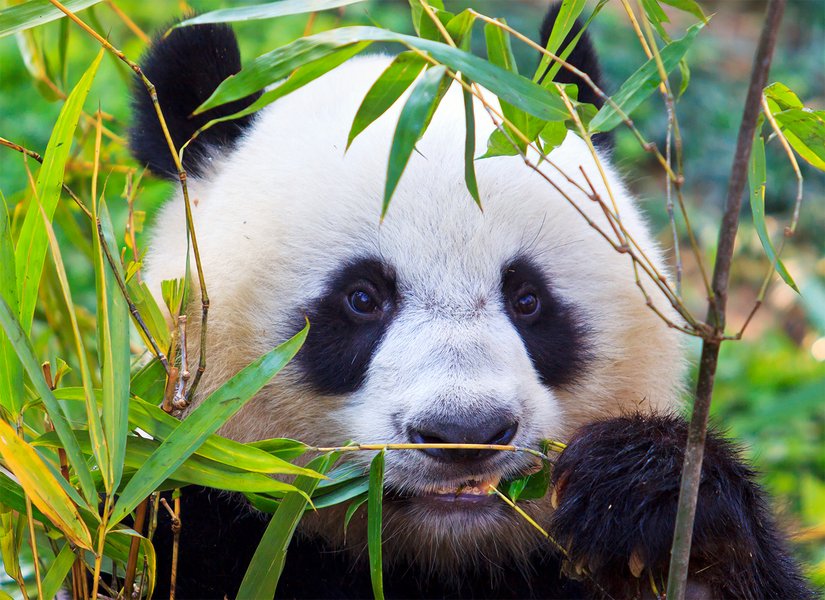Panda poo, ants and slugs could be key to the green fuel of tomorrow
A new research project at Aarhus University will exploit millions of years of evolution to develop sustainable biofuels. Among other things, the solution lies in the digestive system of pandas.

By imitating natural biological degradation processes, a team of researchers from the Department of Engineering and the Department of Bioscience at Aarhus University aims to convert so-called lignocellulosic biomass (everything from wood and residual crops to waste and grass) into sustainable bioethanol.
There is massive potential for large-scale sustainable production of biofuel, because lignocellulosic biomass is currently a huge, but unexploited, carbon source. Unexploited because we have not yet developed a technology that can productively transform the energy bound in the substance.
But now, scientists may have found the solution in the intestines of pandas and slugs, and in ants' fungus gardens. Here, the researchers are looking for special enzymes and microorganisms that, for millions of years, have specialized in the breakdown of this particular material.
"Among other things, we’ve collected a large amount of panda poo, and incubated the bacteria in the laboratory. We then fed bamboo to these bacterial colonies and found that they can very quickly break down lignocellulosic biomass into ethanol, lactate and hydrogen. The microbial culture that has developed in the gut of pandas seems to be quite unique," says Associate Professor Alberto Scoma from the Department of Engineering, who is heading the Engineered Microbial Systems research group at Aarhus University.
Alberto Scoma came up with the idea for the project during a visit to a zoo in Belgium. While watching two new panda arrivals, he came to think about how strange it is that a bear can live almost exclusively on bamboo.
Pandas are bears, and in terms of physiology, they are carnivores. Nevertheless, up to 99 per cent of a panda’s diet is bamboo. It takes just 5 to 12 hours before the lignocellulosic biomass that bamboo consists of is excreted.
"If a heavy Panda can feed itself with lignocellulosic biomass with a digestion time of only up to 12 hours, its digestive system must be really good at breaking down the material. Pandas eat a lot of bamboo per day, about 10 kg. So, the microbes in the gut are used to receive a high amount of lignocellulose and must process it very quickly. We can do something useful with microbes like these. Therefore, we’re trying to understand the process in detail, so that we can repeat it in the laboratory, and hopefully use it in industry in the future," says Alberto Scoma.
Working with Stine Slotsbo, special consultant, Hans Joachim Offenberg, senior researcher, and Jesper Smærup Bechsgaard, all from the Department of Bioscience, and with Thomas Boesen, Associate Professor at the Department of Molecular Biology and Genetics, Associate Professor Alberto Scoma has included other species in the project; species which, like the panda, also digest lignocellulosic biomass.
"Portuguese slugs (Arion lusitanicus) and leaf-cutter ants (Atta cephalotes) were an obvious choice for the project, as both species feed on similar biomass. Slugs, like pandas, by eating it directly, while the ants use fungi to break down the biomass for them," says Hans Joachim Offenberg and continues:
"Evolution always finds a solution, as long as it has enough time. Now it's just up to us to understand the complex microbial degradation, so that we can take the relevant enzymes out of the equation and test them in vitro, and I hope that then we will be able to find out exactly what the enzymes are capable of. We’re using millions of years of evolution to solve a modern problem."
The project officially starts on 1 April 2020, and it is being supported by the Aarhus University Research Foundation. The aim is to produce bioethanol via completely natural processes.
Contact
Alberto Scoma
Associate Professor, Department of Engineering
Mail: as@eng.au.dk
Tel.: +4561393123
Hans Joachim Offenberg
Special consultant, Department of Bioscience
Mail: joaf@bios.au.dk
Tel.: +4525580680
